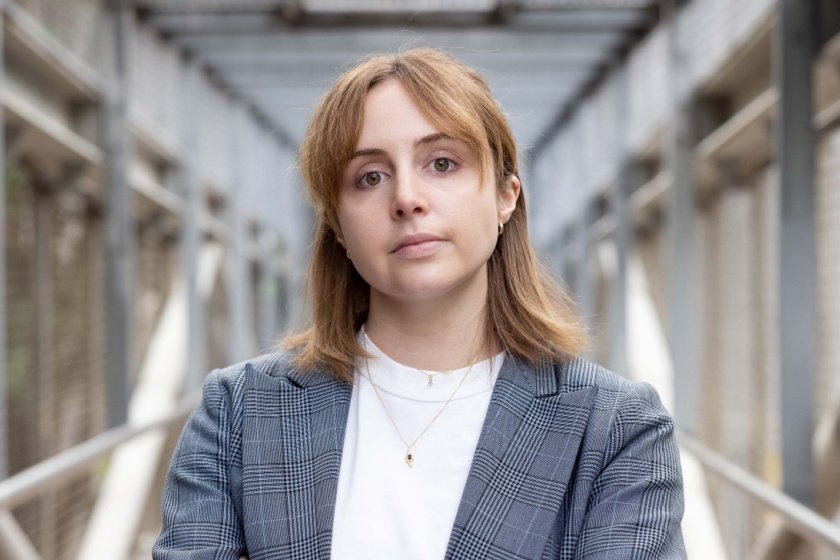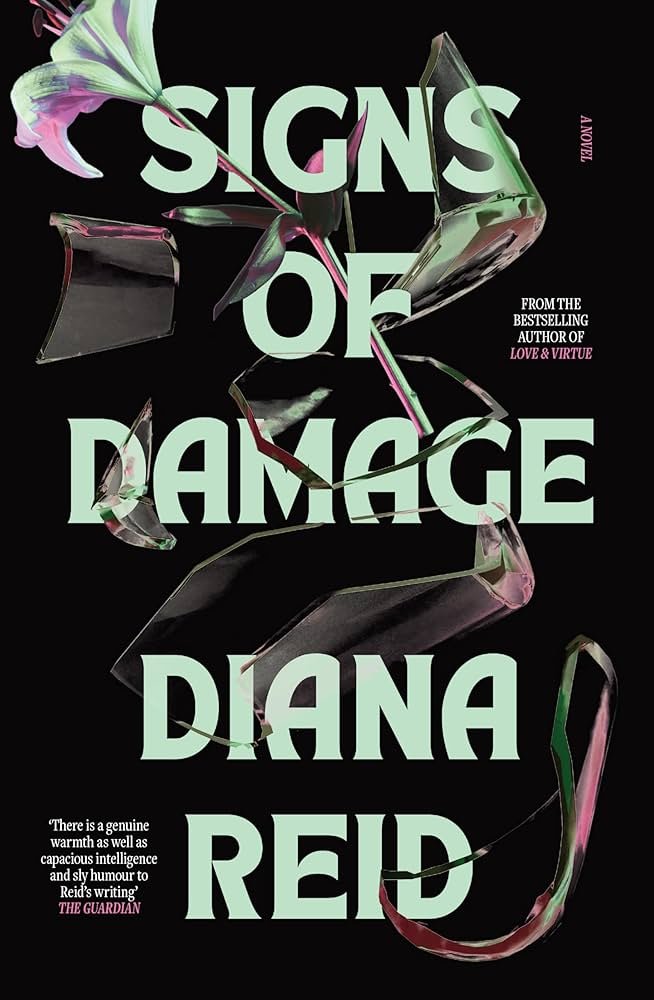Meet the Australian author of our book of the month for April, Diana Reid. She is the author of bestselling novels Love & Virtue and Seeing Other People. Her debut, Love & Virtue, won the ABIA Book of the Year Award, the ABIA Literary Fiction Book of the Year Award, the ABA Booksellers’ Choice Fiction Book of the Year Award, and the MUD Literary Prize. She was also named a Sydney Morning Herald Best Young Australian Novelist in 2022. Born in Sydney, she is currently based in London. Signs of Damage is her third novel.

- To begin with why don’t you tell us a little bit about yourself – where were you born? Raised? Schooled?
I was born, raised and schooled in Sydney. Recently, I moved to London to try to complicate that answer (but not too much… most of the people I know in London are also Australians).
2. What did you want to be when you were twelve, eighteen and thirty? And why?
When I was twelve and eighteen I wanted (with, like, embarrassing earnestness) to be an actor. Probably because I’ve always been interested in what it’s like to be other people. Now I’m almost thirty, I just want to keep writing, which is a way to explore what it’s like to be someone else without the self-exposure of acting.
3. What were three works of art – book or painting or piece of music, etc – you can now say had a great effect on you and influenced your own development as a writer?
Like most readers who were born in the 90s, I was a Harry Potter child. I’m grateful that I grew up in a generation where reading was, never quite cool, but culturally significant. Then when I was a teenager I became obsessed with those Merchant Ivory films, the Henry James and E M Forster adaptations, and that’s how I discovered some of my favourite writers. And then, when I decided I wanted to try writing a novel, I came across The First Stone by Helen Garner. Prior to reading it, my writing experience was limited to little sketches or academic essays for university. I was hesitating with the novel (which later became Love & Virtue) because I didn’t have a punchline; a “thesis” or coherent argument. Garner taught me that it’s okay to start with a question. And that often the result of your inquiry will be more questions rather than an answer.
4. Please tell us about your novel (which is also our BOTM!), Signs of Damage.
It’s a “summer noir” (which means: bad things happening in idyllic settings) about a woman called Cass, who is suffering something that modern medicine struggles to explain and the way the people around her impose their own explanations. Specifically, they wonder whether the cause of all her suffering is rooted in the events of a disastrous family holiday in the South of France 16 years ago…
5. What do you hope people take away with them after reading your work?
An impression that the world is more complicated than it appeared before. Hopefully, that complexity is clarifying: a matter of making fine distinctions, rather than frustrating and confusing.
6. Whom do you most admire in the realm of writing and why?
It would be hard to go past George Eliot for the sheer scale of her achievement.
7. What advice do you give aspiring writers?
Don’t worry about whether it’s any good! If you just write it, you can always go back and edit it later. But if you let perfectionism or the fear of what other people might think paralyse you, then you’ll never write anything.


Signs Of Damage
It was as if the present and the past were linked: a spider’s web, wherein a shock to one strand could make the whole structure shake.
The Kelly family’s idyllic holiday in the south of France is disturbed when Cass, a thirteen-year-old girl, goes missing. She’s discovered several hours later with no visible signs of injury. Everyone present dismisses the incident as a close brush with tragedy.
Sixteen years later, at a funeral for a member of the Kelly family, Cass collapses. The present and the past start to collide as buried secrets come to light and old doubts resurface. What really happened to Cass in the south of France? And what’s wrong with her now?





 January Book of the Month Wine Club: Naked Wines x Booktopia
January Book of the Month Wine Club: Naked Wines x Booktopia  December Book of the Month Wine Club: Naked Wines x Booktopia
December Book of the Month Wine Club: Naked Wines x Booktopia  On The Pod: What To Read in September 2022, Taylor Jenkins Reid and Emily Henry!
On The Pod: What To Read in September 2022, Taylor Jenkins Reid and Emily Henry!
Comments